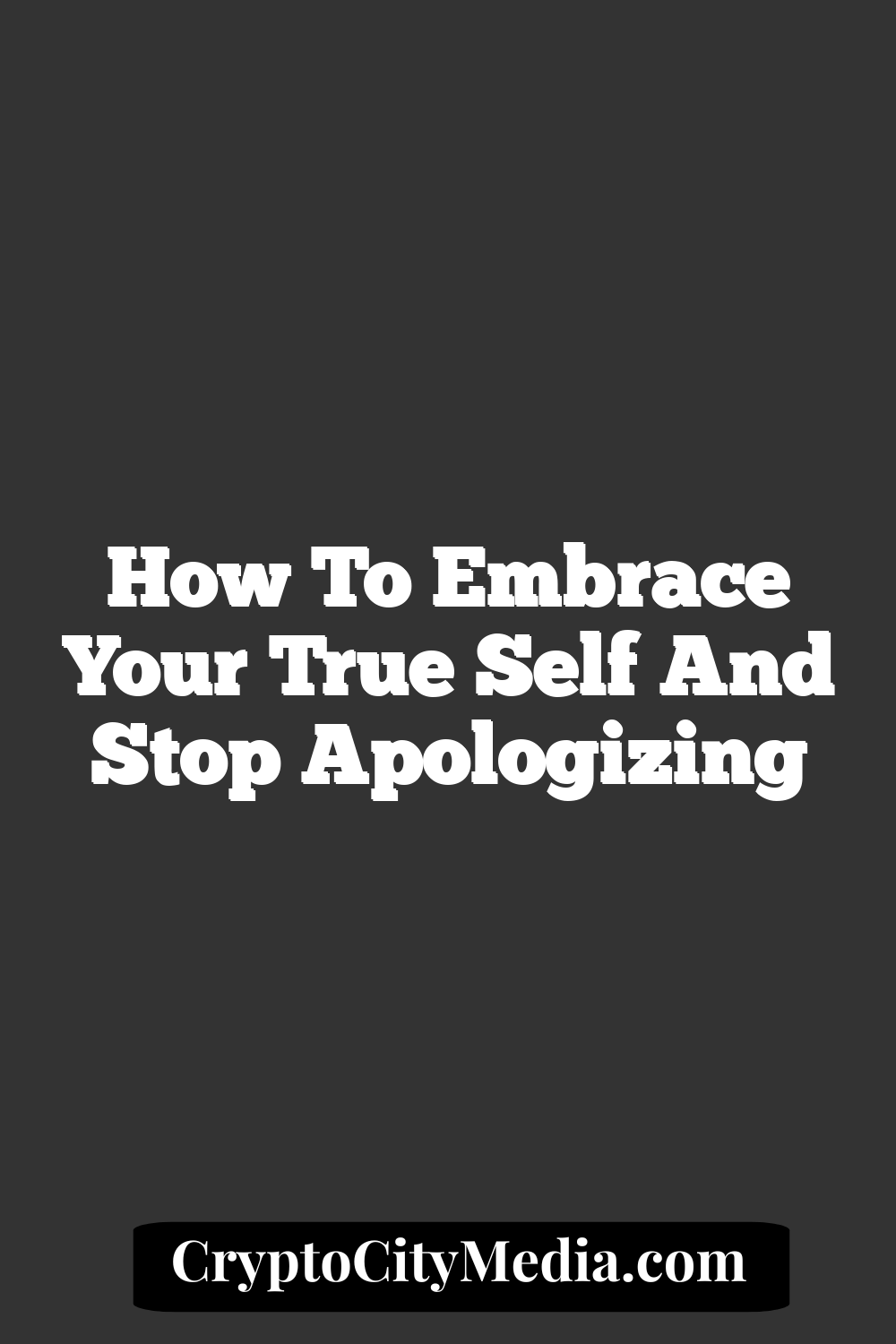
In a world that often pressures us to conform, embracing your true self can be a daunting task. Many people find themselves apologizing for their thoughts, feelings, and identities, often sacrificing their authenticity for the sake of acceptance. However, learning to embrace who you truly are is liberating and essential for personal growth and happiness. Here’s how to stop apologizing and start living authentically.
1. Acknowledge Your Feelings and Needs
The first step in embracing your true self is to recognize and validate your feelings and needs. Everyone has their unique emotions, desires, and boundaries, and it’s important to honor them. Take time to reflect on what truly matters to you, and practice expressing your needs without guilt. Remember, your feelings are valid, and you have the right to voice them.
2. Challenge Negative Self-Talk
Many people struggle with internal dialogue that undermines their self-worth. This negative self-talk can lead to excessive apologizing and a lack of confidence in your identity. Pay attention to the language you use with yourself. When you catch yourself thinking negatively, challenge those thoughts. Replace them with positive affirmations that reinforce your worth and authenticity. For example, instead of thinking, “I shouldn’t have said that,” remind yourself, “It’s okay to express my opinions.”
3. Set Boundaries
To embrace your true self, it’s essential to establish healthy boundaries in your relationships and interactions. This means learning to say no when necessary and standing firm in your choices without feeling the need to explain or apologize. Setting boundaries allows you to protect your emotional space and prioritize your well-being. Remember, it’s not selfish to prioritize yourself; it’s an act of self-love.
4. Surround Yourself with Supportive People
The people you surround yourself with significantly impact your ability to embrace your true self. Seek out friends and family who encourage authenticity and acceptance. Positive relationships can provide a safe space for you to express your true self without fear of judgment. Conversely, if you find yourself around individuals who constantly criticize or belittle you, consider distancing yourself from those toxic influences.
5. Practice Self-Compassion
Embracing your true self requires compassion and understanding towards yourself. Recognize that everyone makes mistakes and that you’re on a journey of growth and learning. When you stumble, instead of berating yourself, practice self-compassion. Treat yourself with the same kindness and understanding you would offer a friend. This shift in mindset can help reduce the need to apologize for being human.
6. Own Your Story
Your life experiences, both good and bad, shape who you are. Embrace your story, including your struggles, failures, and successes. Owning your narrative empowers you to share your experiences with confidence, allowing you to connect more authentically with others. Remember, your story is unique and valuable, and sharing it can inspire others to embrace their true selves as well.
7. Let Go of Perfectionism
Perfectionism can be a significant barrier to embracing your true self. The fear of not being “good enough” often leads to over-apologizing and self-doubt. Recognize that perfection is an illusion and that it’s okay to be flawed. Embrace your imperfections as part of what makes you human. By letting go of the need to be perfect, you free yourself to express your authentic self without fear.
8. Embrace Vulnerability
Being authentic often requires vulnerability, which can feel uncomfortable. However, embracing vulnerability can lead to deeper connections and a greater sense of self-acceptance. Share your thoughts and feelings openly with trusted individuals, even if it makes you feel exposed. Vulnerability fosters intimacy and allows you to be seen for who you truly are, which can be incredibly liberating.
9. Practice Gratitude for Your Authentic Self
Regularly practicing gratitude can help shift your focus from what you perceive as flaws to appreciating your unique qualities. Take time each day to reflect on what you love about yourself, whether it’s your creativity, sense of humor, or resilience. Celebrating your authentic self reinforces positive self-image and encourages you to embrace who you are.
10. Commit to Continuous Growth
Embracing your true self is an ongoing journey. Commit to self-discovery and personal growth by exploring new interests, challenging limiting beliefs, and stepping outside your comfort zone. As you grow and evolve, your understanding of your true self will deepen, allowing you to live more authentically.
Conclusion
Embracing your true self and stopping the habit of apologizing can transform your life and relationships. By acknowledging your feelings, setting boundaries, practicing self-compassion, and surrounding yourself with supportive people, you can cultivate a more authentic existence. Remember, you have the right to be yourself without apology. Embrace your uniqueness, and watch as your confidence flourishes and your connections deepen. Ultimately, living authentically is the key to a fulfilling and meaningful life.




